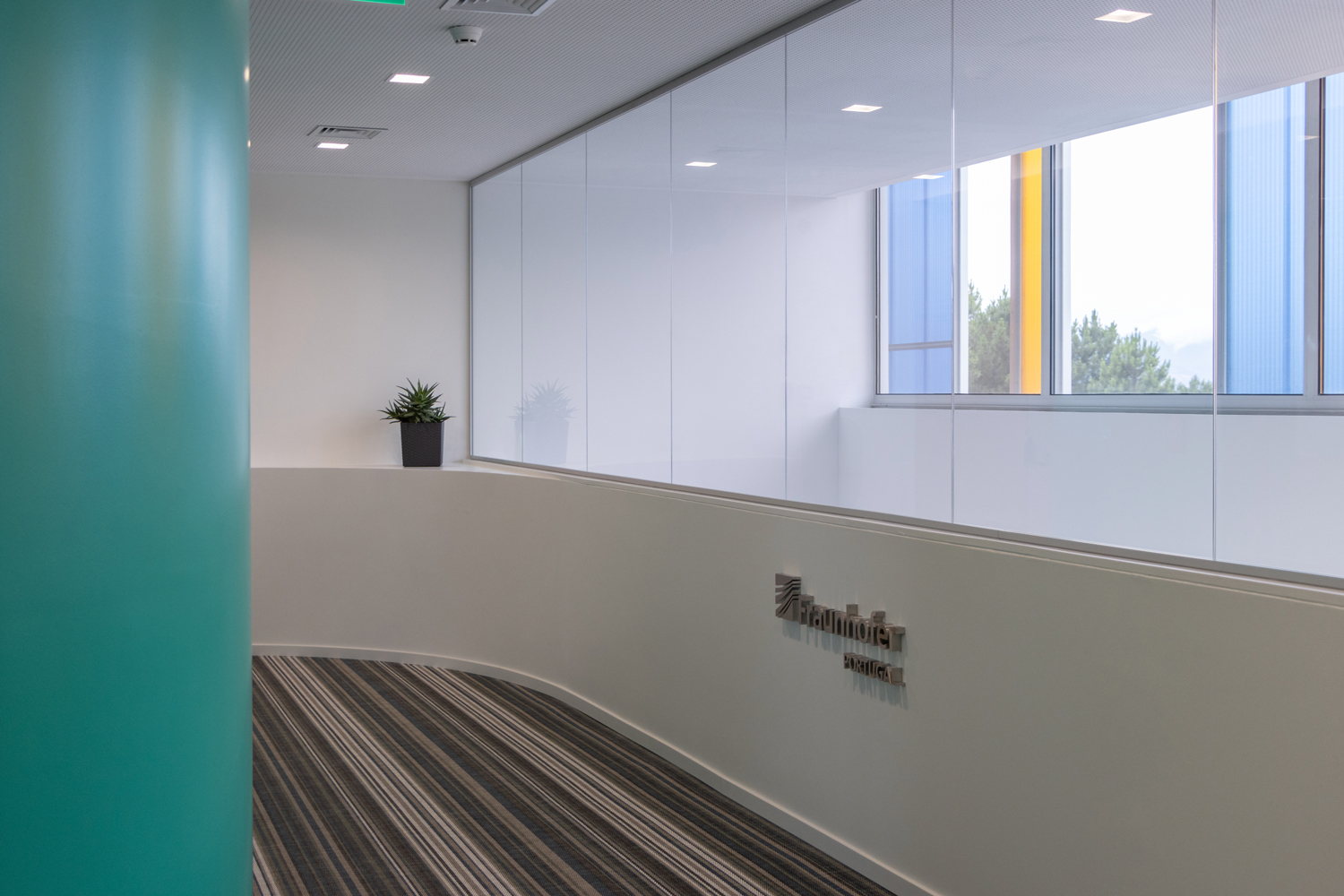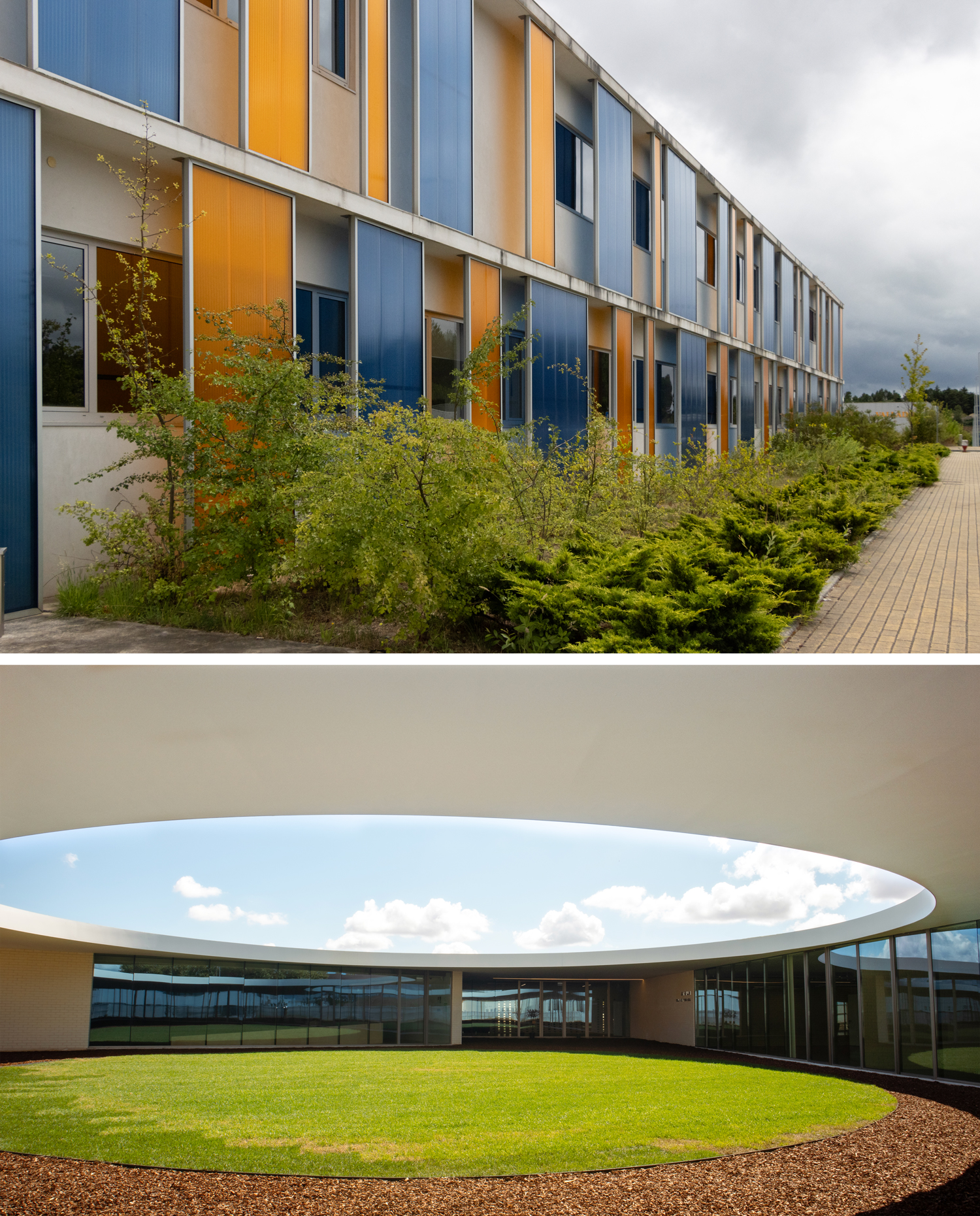Profile and Goals
Our world is facing significant challenges due to climate change and a rising global population. Essential resources such as water, food, and raw materials are becoming increasingly scarce. The Fraunhofer Portugal AWAM Center for Advanced Water, Energy, and Resource Management is committed to tackling these issues through advanced technology and innovative applied research. In close collaboration with industry and academia, we work to deliver solutions that will help secure the future of our planet.
The primary objective of Fraunhofer Portugal AWAM is to develop and implement new process technologies that aim to close regional loops of water, energy, and nutrients. These process technologies encompass a range of solutions, including membrane systems, chemical process engineering, sensors, sensor grids, and energy systems such as bioenergy and renewable gases.
Founding Institutions and Structure
Fraunhofer Portugal undertakes applied research of direct utility to private and public enterprises and of wide benefit to society. As one of the research centers operating under the roof of Fraunhofer Portugal, Fraunhofer Portugal AWAM was founded in 2019 in a partnership between the Fraunhofer-Gesellschaft, Fraunhofer Portugal, the Foundation for Science and Technology (FCT), Universidade de Évora (UÉvora) and Universidade de Trás-os-Montes e Alto Douro (UTAD).
With laboratories in Vila Real at Regia Douro Park - Parque de Ciência e Tecnologia and an office in Évora at PACT - Parque do Alentejo de Ciência e Tecnologia in Évora, the centre works in close collaboration with its academic partners and local industries.
Services
Processes & Technologies Development and Testing
Process engineering in the areas of water, energy and resource valorisation involves the application of several individual processing technologies to solve specific industrial requirements. Fraunhofer Portugal AWAM collaborates closely with Fraunhofer IKTS in Germany, utilizing state-of-the-art ceramic components that can be customized in shape, geometry, and integration capabilities. This partnership allows Fraunhofer Portugal AWAM to leverage the unique materials expertise at IKTS, enhancing its strong position in the market. Regarding membrane technology, the knowledge and competencies cover:
- Understanding the transport mechanisms involved and how they relate to the membrane’s separation properties;
- Characterisation tests to obtain separation parameters (e.g., recovery, permeance, selectivity and rejection), as well as to assess the membrane’s long-term stability (e.g., checking detrimental effects on permeability and selectivity caused by the presence of contaminants, membrane fouling, concentration polarization, etc.) under varied and process-relevant conditions of pressure, temperature, and composition;
- Testing of adsorbents and catalysts to assess their suitability for industrial use in specific separation/purification and reaction challenges. Typical activities consist of the determination of adsorption equilibrium isotherms, analysis of adsorption kinetics, performing screening and ageing tests, assessing catalyst performance indicators (e.g., conversion, yield, and selectivity), determination of intrinsic reaction kinetics and deactivation tests;
- Preparation and characterisation of adsorbents, catalysts, and dual-function materials.
Proof-of-concept and preliminary studies are conducted at laboratory scale for new technology concepts/devices as well as with existing setups (e.g., using single-channel membranes, powder adsorbents and catalysts, small batch fermentation systems, etc.). The research starts with ideal and synthetic media streams and processes, progressing to real matrices to evaluate the potential of the proposed solutions.
Major applications focus on water and wastewater treatment, specifically for the removal of biological and chemical agents such as pesticides. They also involve the recovery of nutrients or valuable compounds from process streams, the dewatering of organic solvents or solvent mixtures (e.g., during bioethanol extraction and purification), and the production of renewable and low-carbon fuels such as biogas, biomethane, hydrogen, methanol, as well as the separation and purification of gaseous streams (including biogas, flue gases, and syngas).
Water Services:
- Separation, treatment, and disinfection of liquid media;
- Test and screening of membranes for liquid filtration;
- Combining and testing different water treatment technologies for a wide range of liquid streams;
- Screening and development of advanced oxidation processes for fit-for-purpose water treatment and disinfection applications;
- Application of UV-A and UV-C radiation as a liquid treatment technology;
- Designing and building lab-scale demonstration devices/systems;
- Simulation of device and system behaviour, including energetic and cost optimisation.
Energy Services:
- Process development for biomass treatment and biogas production;
- Membrane and adsorbent screening and testing for gas separation/purification;
- Development and optimisation of catalytic processes;
- Design and operation of chemical reactors;
- Development in high-temperature adsorbent and dual-function materials for CO2;
- Capture and utilisation applications;
- Fundamental understanding of power-to-X processes, know-how for lab-scale demonstration and large-system operation and consideration of entire process chains (e.g., water treatment in power-to-x applications).
Resource Valorisation Services:
- Separation and treatment of liquid media for the recovery of valuable compounds;
- Membrane screening and development of waste and by-product streams;
- Small-scale pre-treatment of organic matrices, especially organic waste;
- Valorisation assessment of waste and by-product streams;
- Biochemical and microbacterial analysis for the recovery of active product ingredients;
- Design, testing and implementation strategies to increase the circularity of biomaterials, nutrients and water;
- Life cycle analysis (LCA) and assessment of adequate business models.
 Fraunhofer Center for Advanced Water, Energy and Resource Management – AWAM
Fraunhofer Center for Advanced Water, Energy and Resource Management – AWAM

